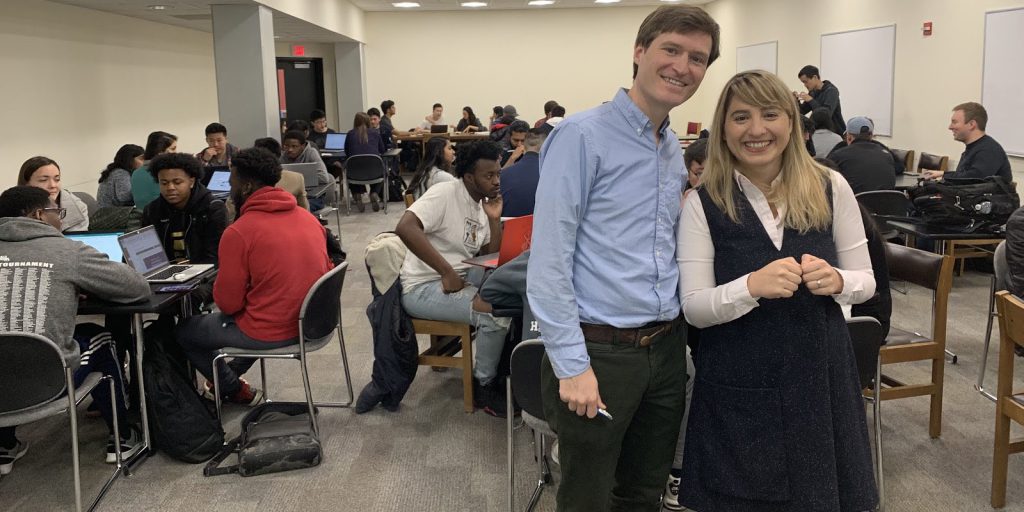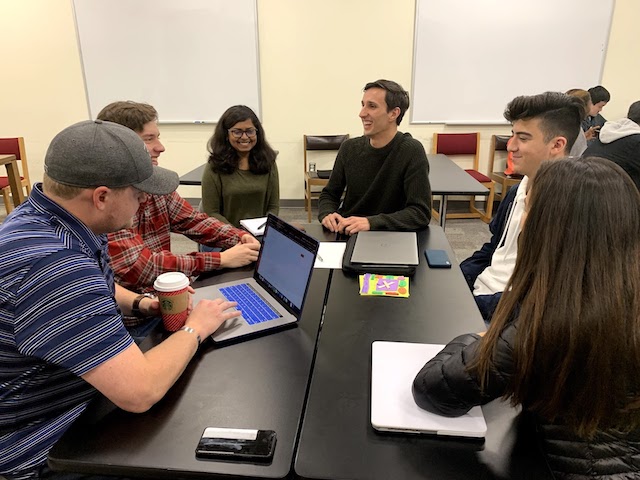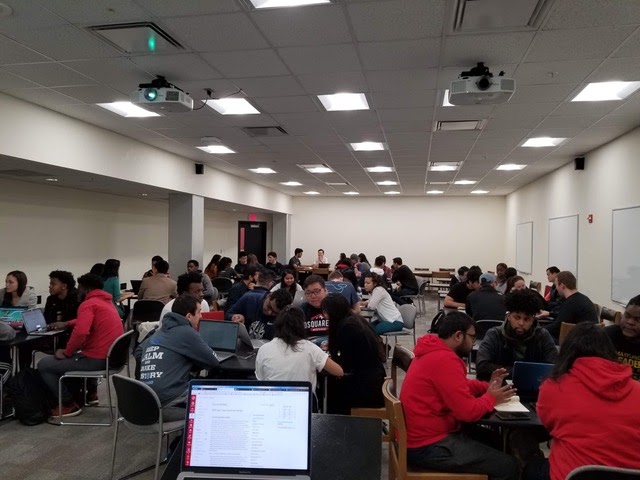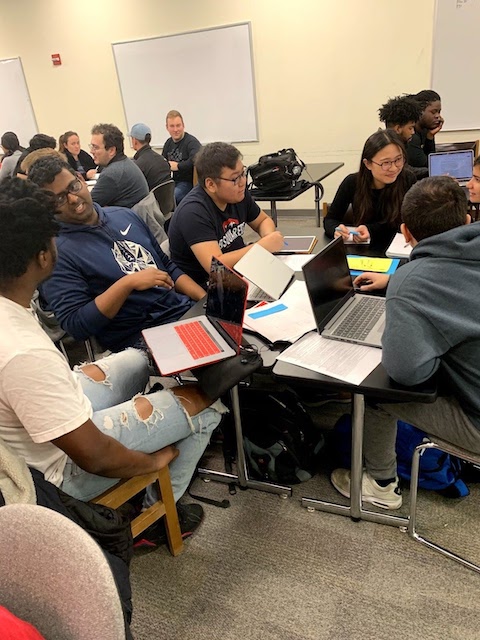
Master of Science in Human-Computer Interaction (HCIM) students from the University of Maryland College of Information Studies (UMD iSchool) had the unique opportunity to mentor iSchool undergraduates as part of a new initiative established by iSchool assistant professors Hernisa Kacorri and David Weintrop. The HCIM graduate students in Kacorri’s Inclusive Design course served as inclusive design consultants for undergraduates’ semester-long projects in Weintrop’s User-Centered Design course.

“From the grad student perspective, the incentive was to provide students with an inclusive design consulting experience. Students practice these skills during the critical discussion of their weekly design sketches but this is typically done internally. So this was an opportunity to put these skills in test in a scenario that is closer to a real-world task.”
During the class, HCIM students collaborated with each group to get to know about the projects, hear about the proposed designs and then talk through ways to make the designs more inclusive in order to consider a broader set of potential users. Some of the projects the students are working on include improving office hours for large undergrad classes, improving students’ on-campus gym experience, redesigning the sleep pods in McKeldin, improving campus navigation, improving tools for student veteran mentorship, and redesign the college of education’s teacher recruitment website.
“[We] thought the experiment was a big success and the type of thing we should be doing more in the iSchool,” said Weintrop. The experience was something that Weintrop felt was “unique and really positive” for the students who participated in the mentor session.

Many of the undergraduates expressed their appreciation for the experience to work with the HCIM students and receive constructive feedback on their projects:
“The activity was really useful since it provided us with feedback to make our designs more feasible and realistic. It was refreshing to receive input from students who are more knowledgeable and experienced in the area because they are very understanding in what we were trying to achieve through our designs as students,” said one undergraduate student.
“This was a great experience as the two grad students were really interested in the project and were very helpful with their feedback. In fact, they got our email to keep in touch.”
“Having dove so far into this project and invested so much time and thought into it, I think my focus began to really narrow down which in some ways hindered my creativity. Having an outsider come in and review the work I’ve down allowed me to broaden my mind again and see new possibilities.”

The graduate student mentors also gained applicable experience from this initiative for their portfolios and future career goals:
“I feel that this was very helpful for me, as a rising product designer to see how students are thinking about products and how much I have grown over the past year as I try to think of so many arenas when thinking of a simple design system.”
“I think that the experience was a positive one because the group was very open and honest with their opinions. They understood that what they had accomplished still needed work and were willing to continue to work towards improvements. They were receptive to accessibility and how it was important but more so, it was for the greater good.”
“A positive surprise was the enthusiasm shown by this team to understand and find ways to make their design inclusive for all student populations. They took notes, did a quick walkthrough of WAVE with our guidance, and started thinking about how the contrast errors could be fixed in their design.”
Kacorri and Weintrop look forward to continuing this educational model in future semesters. To learn more about the UMD iSchool’s academic programs, visit: https://ischool.umd.edu/academics